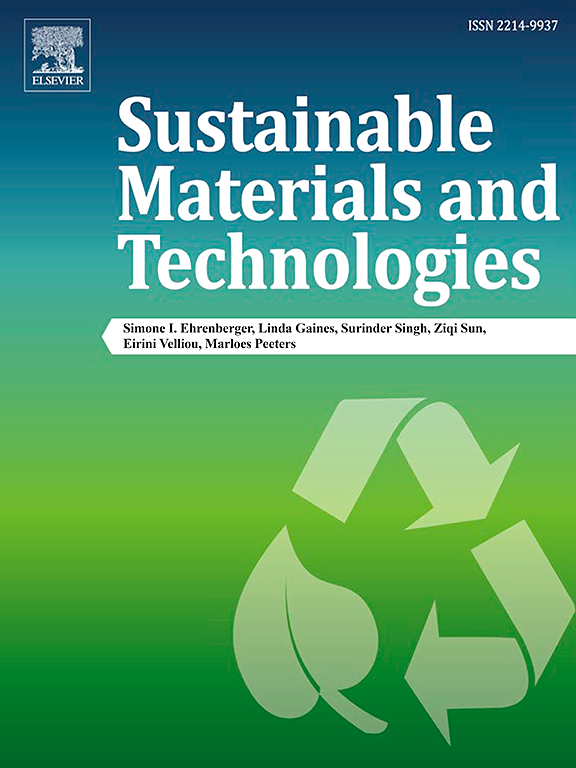Recycling and revalorization of PLA and PHA-based food packaging waste: A review
IF 8.6
2区 工程技术
Q1 ENERGY & FUELS
引用次数: 0
Abstract
Poly(lactic acid) (PLA) and poly(hydroxyalkanoates) (PHAs) are the most significant biodegradable polymers in terms of their increasing global industrial production capacities with the aim of replacing petroleum-derived food packaging materials. The latter are well known for their environmentally polluting nature. This paper aims to review the diverse technologies related to the recycling and revalorization of single-use food packaging materials based on PLA and PHAs (e.g. chemical depolymerization, solvolysis, mechanical recycling (mechanochemistry), enzymatic hydrolysis, fermentation, gasification and hybrid approaches), as well as to address an important issue for plastic materials manufacturers as is the reprocessing of residual materials obtained during the manufacturing of food packaging. The latter is aimed at reducing waste and increasing the economic sustainability of the materials and the business. Mechanical recycling (mechanochemistry) is recommendable with the aim of reducing waste and increasing the sustainability of residual materials obtained during the manufacturing of industrialized biodegradable food packaging based on PLA and PHA. In contrast, chemical (chemical depolymerization and solvolysis), enzymatic and fermentation recycling is recommendable to treat discarded single-use food packaging materials made from PLA or PHA, thus yielding chemical precursors (monomers) and fuels, which can then be used as feedstocks to produce their corresponding recycled/renewed polymers or copolymers, thereby diminishing the need for new chemicals. Finally, the gasification process is currently representing an interesting perspective for connecting hybrid recycling approaches between the use of chemistry and bioprocesses, and not merely obtaining synthesis gas as a precursor of monomers, copolymers and/or recycled/renewed biodegradable polymers.

聚乳酸和聚苯乙烯基食品包装废弃物的回收再利用研究进展
聚乳酸(PLA)和聚羟基烷酸酯(pha)是最重要的可生物降解聚合物,其全球工业生产能力不断提高,旨在取代石油衍生的食品包装材料。后者以污染环境而闻名。本文旨在综述基于聚乳酸和pha的一次性食品包装材料的回收和再固化相关的各种技术(如化学解聚、溶剂解聚、机械回收(机械化学)、酶解、发酵、气化和混合方法),并解决塑料材料制造商面临的一个重要问题,即食品包装制造过程中获得的剩余材料的再加工。后者旨在减少浪费,提高材料和业务的经济可持续性。机械回收(机械化学)是值得推荐的,目的是减少浪费和增加在基于聚乳酸和PHA的工业化可生物降解食品包装制造过程中获得的剩余材料的可持续性。相比之下,建议使用化学(化学解聚和溶剂解聚)、酶和发酵回收来处理由聚乳酸或PHA制成的废弃一次性食品包装材料,从而产生化学前体(单体)和燃料,然后将其用作原料生产相应的回收/再生聚合物或共聚物,从而减少对新化学品的需求。最后,气化过程目前代表了一个有趣的观点,它将化学和生物过程之间的混合回收方法联系起来,而不仅仅是获得合成气作为单体、共聚物和/或回收/再生的可生物降解聚合物的前体。
本文章由计算机程序翻译,如有差异,请以英文原文为准。
求助全文
约1分钟内获得全文
求助全文
来源期刊

Sustainable Materials and Technologies
Energy-Renewable Energy, Sustainability and the Environment
CiteScore
13.40
自引率
4.20%
发文量
158
审稿时长
45 days
期刊介绍:
Sustainable Materials and Technologies (SM&T), an international, cross-disciplinary, fully open access journal published by Elsevier, focuses on original full-length research articles and reviews. It covers applied or fundamental science of nano-, micro-, meso-, and macro-scale aspects of materials and technologies for sustainable development. SM&T gives special attention to contributions that bridge the knowledge gap between materials and system designs.
 求助内容:
求助内容: 应助结果提醒方式:
应助结果提醒方式:


